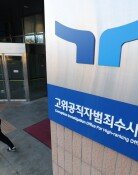Police Announce 43 Active Pro-North Korean Websites
Police Announce 43 Active Pro-North Korean Websites
Posted September. 08, 2004 21:52,
The police have caught 43 pro-North Korean websites that advertise the North Korean regime or praise Kim Jong-il and his late father Kim Il-sung. The police have also discovered that the North Korean government has recently started to fully utilize those websites.
Yesterday, National Security Division 2 at the Korean National Police Agency announced that the number of pro-North Korean websites that are accessible from South Korea has reached 43 so far, an increase of 12 from late 2003.
All of the 43 websites have foreign-based servers: 17 in Japan, 11 in China and the U.S. each, one in Denmark, and one in Singapore.
According to the police report, 10 websites based in Japan are run directly by the North: Joseon Inforbank, Korea Book Center, Choseon Travel, Woori-minjok-kkiri (meaning: getting together between our race), Silli Bank (silli meaning benefits), Choseon Lottery Cooperation, Jupesite, Goryeo Baduk (Baduk is Korean checkers), Joseon Stamps, and Joseon Publishing.
Websites for pro-North Korean organizations that are based in foreign countries include the following: Joseon Tongsin (Tongsin means correspondence) and Guk-jeonseon (meaning channels between nations) in Japan, Unification Arirang (Arirang is a traditional Korean folk song) in China, Minjok Tongsin (Minjok means race) in the U.S., and 12 new pro-North Korean websites have launched, including the Korea Network.
A police official said, Beside those 43 websites, we keep an eye on 900 domestic and foreign websites and PC communications that have once put up North Korean propaganda on their sites.
According to the analysis by the police agency, materials such as encouraging combat with South Korea, advertisement for the North Korean regime, and admiration of Kim Il-sung and Kim Jong-il have surged on those websites recently.
Meanwhile, the website Woori-minjok-kkiri run by the headquarters office of the Pan-Korean Council for Unification, based in North Korea, has lately showed signs of transforming into a portal website.
On this, the police will consider measures that will deny South Korean domestic residents access to those websites, which is possible now.
At the Administration and Local Autonomy Committee of National Assembly yesterday, GNP lawmaker Park Chan-sook said, North Korea has insisted on a continuous revolutionary battle on cyberspace, claiming that the Internet is free space and that South Korean national security law is impotent, and she asked to Chief of the Korean National Police Agency Choi Gi-moon, Do the police have measures in mind to prevent cyberspace from becoming a liberated area for pro-North Korean groups?
In response to her question, Choi answered, Currently, there are 43 active pro-North Korean websites, and they are mostly foreign based. So, it is a big hurdle to investigate them.
Jong-Koo Yoon needjung@donga.com jkmas@donga.com







